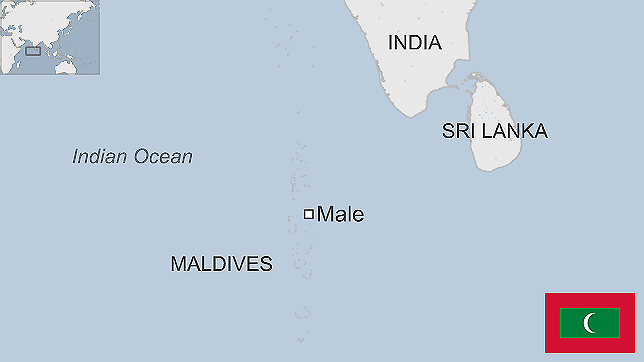Maldives elections will not be in 'foreseeable future'
- Published
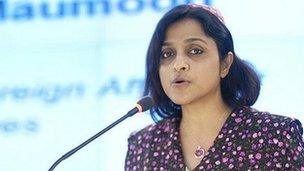
Ms Maumoon said that stability needed to be returned before any elections take place
Maldives state minister of foreign affairs Dunya Maumoon has told the BBC that elections cannot be held in the country "in the foreseeable future".
Dunya Maumoon said that the country's institutions of state were not strong enough for elections to be held.
President Waheed Hassan took office in February. He denies that he staged a mutiny.
The opposition Maldives Democratic Party (MDP) says that the country is now being run by a dictatorship.
But Ms Maumoon said that until the country's state institutions - the judiciary, the election commission and the human rights commission - are strengthened, it would be impossible for a vote to be held.
She said that President Hassan - as vice president - came to power constitutionally following the voluntary resignation of President Mohamed Nasheed in February.
Mr Nasheed said at the time that he was stepping down to prevent "bloodshed", but later insisted that he was forced to do so under duress.
Speaking to the BBC in London, Ms Maumoon said that a vote was impossible until a commission of inquiry set up to determine the circumstances of President Hassan's rise to power had submitted its report.
"We are open to discussions about when elections should take place," she said, "but the opposition is not interested in talking to us about the future of the country."
Ms Maumoon said that a constitutional amendment was also necessary before any election could be held.
"The amendment requires the support of all Maldivian political parties - but so far the MDP had refused to agree to it."
But MDP supporter and former Maldives High Commissioner to London Farah Faizal told the BBC that the current Maldives government was illegal.
"If they wanted to get rid of the government they should have used constitutional and lawful means to do so rather than use the army and police to stage a coup," she said.
She said that the commission of inquiry set up by the government was a "red herring" because it is not impartial and is led by a former minister who for 19 years served under the government of former President Maumoon Abdul Gayoom - Ms Maumoon's father - which she said had imprisoned Mr Nasheed 12 times.
Ms Faizal also said that the government's argument that it needed to strengthen the country's institutions of state was "disingenuous" because presidential and parliamentary elections were held without any problems in 2008 and 2009.
- Published14 March 2012
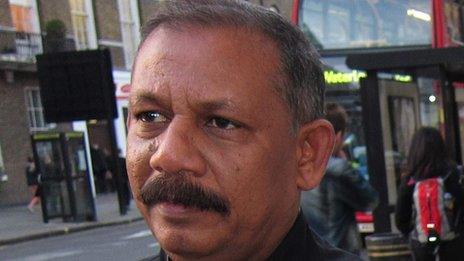
- Published17 February 2012
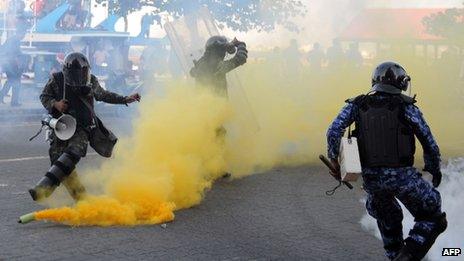
- Published8 February 2012
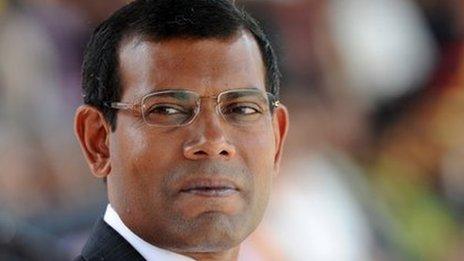
- Published1 March 2012
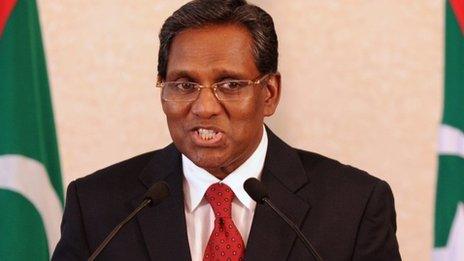
- Published23 February 2012
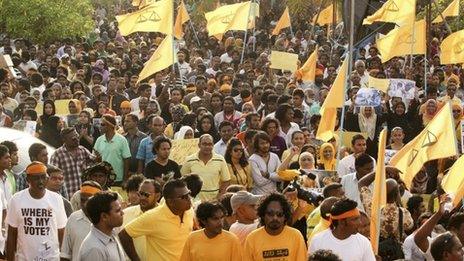
- Published10 March
